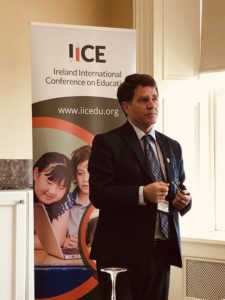After nearly two years of teaching exclusively online, I began teaching in person today. A little nervous but pumped regarding the prospect of seeing students in person again.
This led me to think about what kind of experience students will want in this near-to-the-end pandemic world we are entering. It was then that I came across an article, written by Dana Abdrasheva, Diana Morales, and Emma Sabazlieva, in University World News, an online newsletter, that led off with the title, How Do Students Want Universities to Change in Future?

This article presented a summary of a UNESCO report, Thinking Higher and Beyond: Perspectives on the Futures of Higher Education to 2050, which presented the views of students from around the world who participated in one of 55 focus group consultations conducted in 2020-21 as part of UNESCO’s Futures of Higher Education project. Some of the themes identified include:
- Campus experience will be transformed: Campus experiences will be complemented (but not replaced) by integrating technology into teaching and learning.
- A shift from mobility to engagement: Recognized that “mobility will turn into connectivity” and that travelling to other countries might not be necessary to acquire an international educational degree.
- Co-creation of learning environments: “New forms of knowledge construction, based on cooperative and collaborative relationships between teachers-students and students-students” will result in more co-creation of learning.
- Higher education and the labour market: Links between higher education and the job market are of prime importance, with many calling for more “market-ready” preparation.
- Global processes linked to local communities: Connectivity is seen as the big takeawaywith calls for increased connections between global and local communities.
The big question is whether we, in higher education, are ready to attend to students’ views on the changing roles of higher education.
Throughout the pandemic, I can recall conversations with students who lamented about the loss of in-person instruction, while others asked for their courses to remain online. This led me to conclude that it is not one way or another, but looking at what is needed and then delivering the student experience as close to that vision as possible. This does not mean we will return fully in person, but neither does it mean we will stay fully online. We need to do what is best for our students, and in doing that, we will find a higher education experience where the campus experience is transformed, our focus is placed on engagement, we engage with our students as partners in learning, and connect our work with the labour market and global communities.
These are fascinating times!
-Clayton Smith
Recent Comments